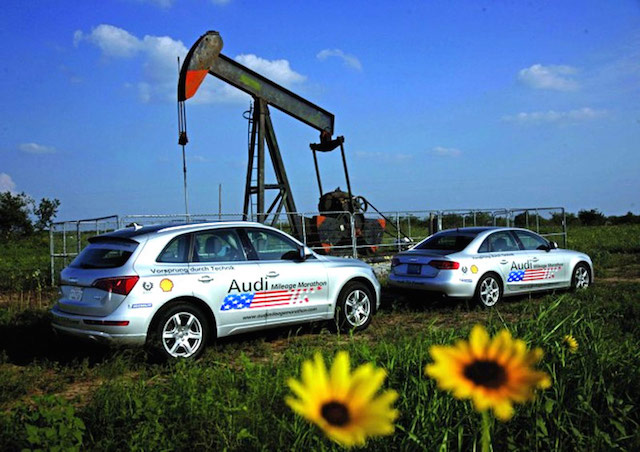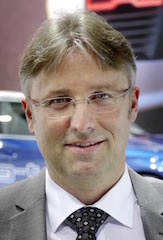
Audi is trialing a synthetic petrol that could extend the life of the internal combustion engine far beyond its dependance on fossil fuels.
The so-called e-fuel is a renewable product made entirely from glucose from corn. It contains no petroleum products like sulphur or benzine. Tests show it burns cleaner than petrol and its high 100-octane rating is particularly suitable for modern high compression engines.

It has been developed in conjunction with Global Bioenergies, a French alternative fuel company that set up near Reims in 2008 to develop a fermentation process to turn renewable resources like sugar, crops, agricultural and forestry waste to isobutene, one of the main derivatives of petroleum.
Isobutene products are petrochemical building blocks that can be converted into fuels, plastics, organic glass, and elastomers.
In the making of synthetic fuel, the isobutene is converted via a simple separation process into pure isooctane, which would be known as “100 unleaded.”
It can be used as an additive in petrol but Audi is exploring its potential as a standalone, renewable fuel.
Audi’s head of sustainable product development Reiner Mangold said the partnership with Global-Bioenergies was an important step in the carmaker’s research into sustainable fuels.

“The confirmation that Global Bioenergies’ renewable isobutene is compatible with a commonly used fossil isobutene to isooctane conversion technology represents a key step on our way to Audi ‘e-benzin’”, said Mangold.
Global Bioenergies (global-bioenergies.com) is now only producing a relatively small 10 tonnes of isooctane a year, but it plans to boost annual production to 100 tonnes at its new plant in Germany.
Its CEO Marc Delcourt said the renewable gasoline represents a historic milestone. “It is the kickoff of a new, large-scale, and decentralised industry which respects the environment and will gradually substitute traditional fossil hydrocarbons,” he said.
Audi is expected to fast-track the development of its e-benzin strategy as it looks to increase its line-up of SUVs.

Audi chairman Rupert Stadler predicts a massive worldwide explosion in SUV sales, to the point where almost half of all Audis will be SUVs in the next five years.
“We are working hard on our SUV strategy,” he said. “In five to 10 years 40-45 per cent, possibly even 50 per cent, of our sales will be SUVs. I prefer to react to what the customer wants and they are asking for SUVs.”
Audi’s current SUV line-up of Q7, Q5 and Q3 will be joined by a Q1 next year and a Q8 in 2017. The entire model portfolio will increase from 50 to 60 cars by 2020.
Audi’s current SUV line-up of Q7, Q5 and Q3 will be joined by a Q1 next year and a Q8 in 2017. The entire model portfolio will increase from 50 to 60 cars by 2020.
